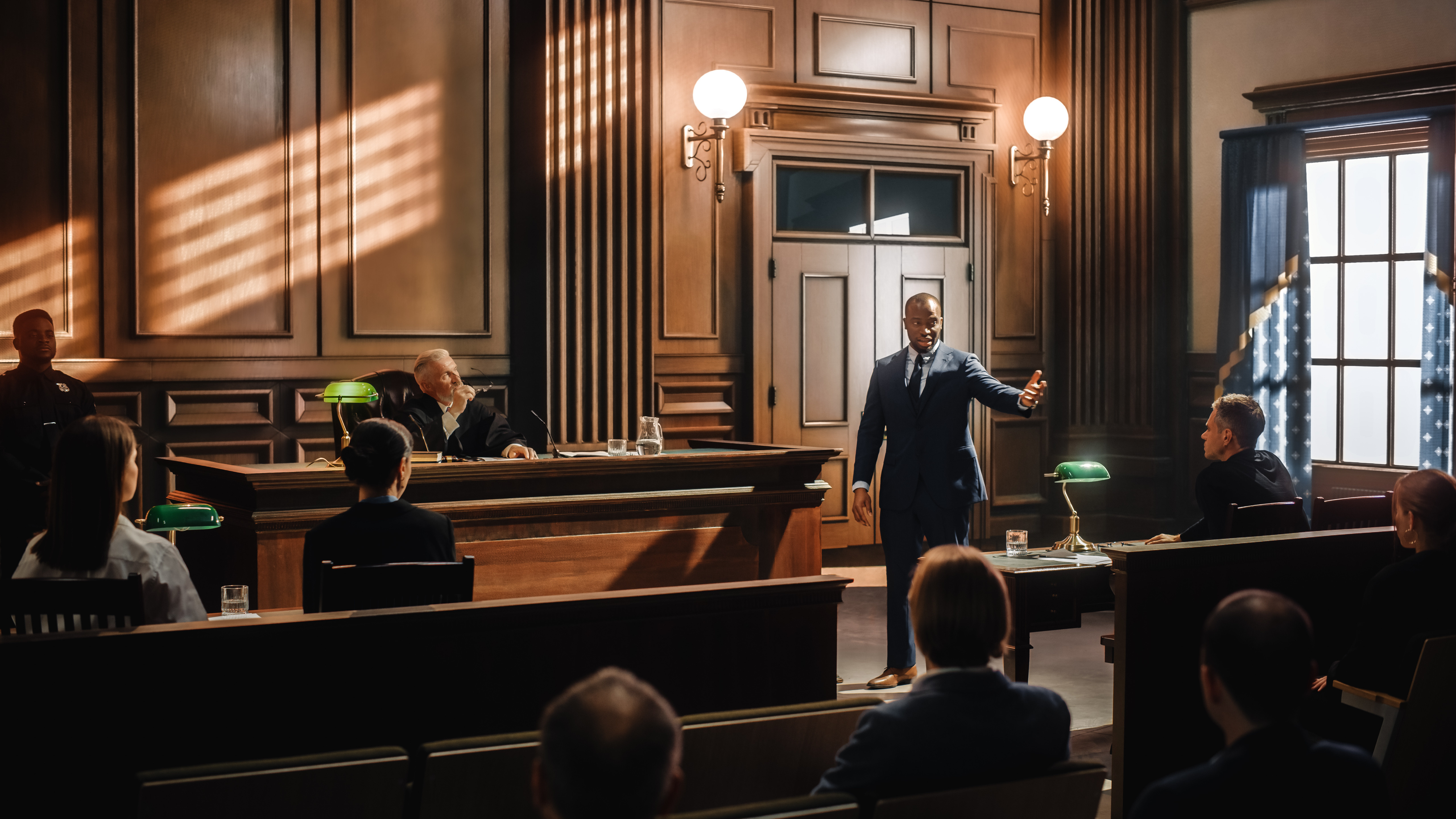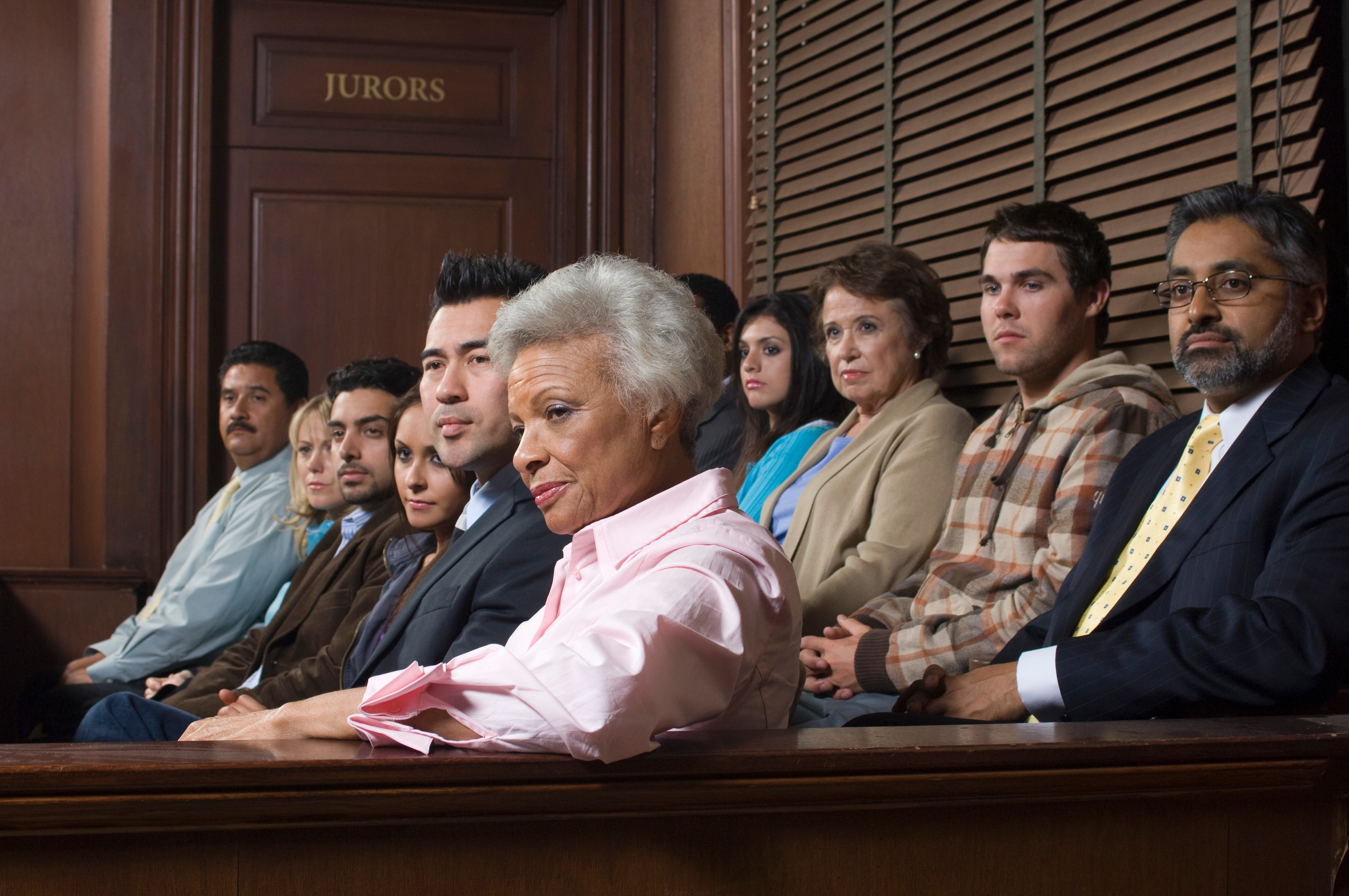Arraignment Hearing: What Is It, What to Expect, & Other FAQs Answered

No one wants to be in the court system for any reason but let’s face it, things happen and you may find yourself there.
Knowing what to expect when you have any legal issue that requires a court appearance can help lessen the already stressful situation you may be facing.
If you are scheduled to attend an arraignment hearing, you may have already been arrested and posted bail or are sitting in jail awaiting an arraignment hearing.
Either way this is the time to consider some decisions that could make this process easier as it moves along.
If you have a scheduled arraignment hearing, you are now in the thick of the legal system. It is in your best interest to contact a defense lawyer like The Defenders before your first court appearance.
Having a legal team with a reputation for defending clients against criminal charges and winning can set a precedent of how your case will be handled and how it will move forward.
Contact our office today for a free consultation.
What Is an Arraignment
An arraignment hearing is the first court appearance in the life of a criminal case.
In this hearing, the court notifies you of the charges against you and you enter a plea of guilty or not guilty.
You must appear for this arraignment hearing unless you have a defense attorney appearing on your behalf.
5 Things to Know About Arraignment Hearings
- If you have been arrested and are out on bail the court will set an arraignment date within the next few weeks.
- If you have been arrested and can’t get bail you must be arraigned within 72 hours
- You should always plead not guilty since you can change your plea at a later date
- Failing to appear for your arraignment hearing will lead to a bench warrant being issued for your arrest
- The arraignment hearing is the shortest of all court appearances
Do All Arrests Lead to an Arraignment
In most cases, arrest leads to future court proceedings and therefore arraignment hearings.
If the District Attorney’s (D.A.) investigations lead them to believe they have enough evidence to continue, then the arraignment and subsequent trial proceeding will take place.
In some cases, the prosecutors will join cases and defendants together into one case.
What Happens During an Arraignment Hearing
The judge will call your case by your name and a case number that will be assigned to your case by the court.
The judge will then read the charges against you.
You and/or your attorney appear before the judge to hear the charges. You then have the opportunity to enter a plea at this time.
In most cases, you will plead not guilty. You can change your plea at any time after the arraignment to a plea of no contest or guilty as part of a plea bargain.
If you are in custody at the time of your arraignment, your lawyer may ask that you be released on OR (on your own recognizance) or for the bail to be lowered so you can set bail and be released.
Once you plead not guilty, the next court date will be set by the judge.
The next court date will depend on the charges and the case against you.
The next court date will be either a trial date, a pretrial hearing, a status check, or a preliminary hearing.
What Happens After the Arraignment
Once you have been arraigned your lawyer will ask the prosecutors for “discovery” of your case.
Discovery is the evidence that the state has against you and can include:
- Police reports
- Surveillance videos
- Forensic test results
- Witness accounts
During this time your attorney will be meeting with the prosecutors to negotiate a plea bargain with the prosecutors.
We may see the long drawn out criminal cases on television where a trial lasts 6 months; however, most cases end in a plea where the charges are reduced or even dropped without a trial.
If your lawyer and the prosecutor cannot come to an agreement, then your attorney will discuss the possibility of going to trial with you.
You have a right to a speedy trial, usually within 60 days of your arraignment, with exceptions in some cases.
When Do Arraignments Occur
The time frame for an arraignment depends on the severity of the case and whether or not you have been arrested and are in jail.
If you’re not in custody then the arraignment may take place weeks after your arrest, citation or summons.
If you are in jail and cannot afford the bail or are not granted bail then the arraignment must occur within 3 court days of your arrest.
Do I Need to Appear in Court
This depends on the charges against you. If you are charged with a misdemeanor crime in Nevada, your lawyer can appear on your behalf.
If you are facing felony charges, then depending on the charges against you will determine whether or not you need to be there at your arraignment.
What Happens if I Miss My Arraignment
The consequences for not showing up to any court appearance can be very serious.
Depending on the case, the judge may issue a bench warrant for your arrest for failure to appear.
If you missed the arraignment, you should consider contacting a legal expert before you to do anything else regarding the case against you.
Your new lawyer can file a motion to quash the bench warrant against you.
You can only move forward when this warrant is quashed or removed.

Can the Charges Against Me Be Dropped at an Arraignment
Remember, an arraignment is just the reading of the charges against you and you acknowledging those charges with a plea of guilty or not guilty.
Judges usually don’t drop charges at an arraignment hearing.
The prosecutor can dismiss the charges at an arraignment, but only if there is a compelling reason to do so.
In some cases, charges can be dropped with the understanding that the state has the right to refile the charges against you at a later date.
For instance, in murder cases where a defendant can only be tried once if a verdict is reached, prosecutors are keen to ensure they possess sufficient evidence for a conviction during the trial. Should the prosecution determine that additional time is required to collect necessary evidence against the accused, they may temporarily drop the charges, reserving the right to refile them at a future date..
That’s why hiring an experienced defense lawyer like The Defenders is a good idea no matter what the charges are against you.
If you have been arrested for any crime including financial crimes, DUI, drug charges, domestic violence, even murder, call The Defenders today for a consultation.
We have a record of getting our clients the most favorable outcome possible for the charges against you.
With The Defenders you will always know what is happening with your case so there are no surprises.
Facing Criminal Charges? Hire The Defenders
If you or a loved one have been arrested and are facing criminal charges, it is important to seek legal representation immediately. The Defenders has years of experience defending clients in court and will fight tirelessly for your rights.
Our team of skilled attorneys will guide you through the arraignment process and work towards the best possible outcome for your case. Don’t face the criminal justice system alone – hire The Defenders today.
Our defense attorneys know the procedures, the courtroom personnel, the judges, the jury selection process and the loopholes.
When you don’t have an attorney representing you, there are a number of things that could go wrong.
Our attorneys:
- Will aggressively put in all efforts to get the penalties lowered.
- Can help you achieve fair settlements or plea deals.
- Can protect you from the prosecution.
- Can examine the evidence better than you.
- Will fight for your rights to help keep your criminal history clean.
Prosecutors have a vast amount of resources available to them to find the necessary evidence to convict you. The Defenders are well versed in the prosecution’s tactics and can help you counter them aggressively.
Don’t let criminal charges force you to accept negative consequences that will last your entire life.
Call us today for a strategy session to discuss your case.

Frequently Asked Questions
What is an arraignment hearing?
An arraignment hearing is the first court appearance where the judge formally reads the charges against you and you enter a plea of guilty or not guilty.
Do I need to appear in court for my arraignment?
It depends on the severity of the charges. If they are misdemeanor charges, your lawyer may be able to appear on your behalf. However, if they are felony charges, you may be required to attend the arraignment.
What happens after the arraignment?
After the arraignment, your lawyer will request evidence from the prosecution (called discovery) and negotiate a plea bargain. If no agreement is reached, a trial date will be set by the judge.
What happens if I miss my arraignment?
Missing an arraignment can have serious consequences, including issuance of a bench warrant for your arrest. It is important to contact a lawyer immediately in such a situation.
Can the charges against me be dropped at an arraignment?
Charges are not typically dropped at an arraignment, but it is possible for the prosecution to dismiss them with a compelling reason or reserve the right to refile them at a later date. Having an experienced defense lawyer can increase your chances of a favorable outcome at an arraignment.
Can I change my plea after the arraignment?
Yes, you can change your plea at any time before a verdict is reached. However, it may require the court’s approval and the prosecution’s agreement. It is important to discuss this with your lawyer before making any changes to your plea.
How long does an arraignment hearing usually last?
The duration of an arraignment hearing varies depending on the complexity of the case and whether or not a plea agreement is reached. It can last anywhere from a few minutes to several hours.
Is it possible to have an arraignment hearing without a lawyer?
While you have the right to represent yourself, it is highly recommended that you have legal representation during an arraignment. A lawyer can provide valuable guidance and negotiate on your behalf for a better outcome. Having a lawyer can also increase your chances of being granted bail or having your bail reduced.
What happens if I cannot afford a lawyer for my arraignment?
If you cannot afford a lawyer, the court will appoint one for you at no cost. This is known as being represented by “assigned counsel.” However, it is important to note that this may not be the most advantageous option as assigned counsel may not have the same level of experience or resources as a private defense lawyer. It is always best to consult with a few lawyers before making a decision.
What should I expect from my arraignment hearing?
At an arraignment, you can expect the judge to read the charges against you and ask for your plea. Your lawyer will also have the opportunity to request discovery and negotiate a plea deal or set a trial date. The entire process may feel overwhelming, but with the help of a lawyer, you can navigate it with confidence and increase your chances of a favorable outcome.









